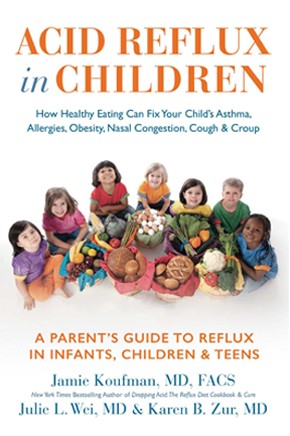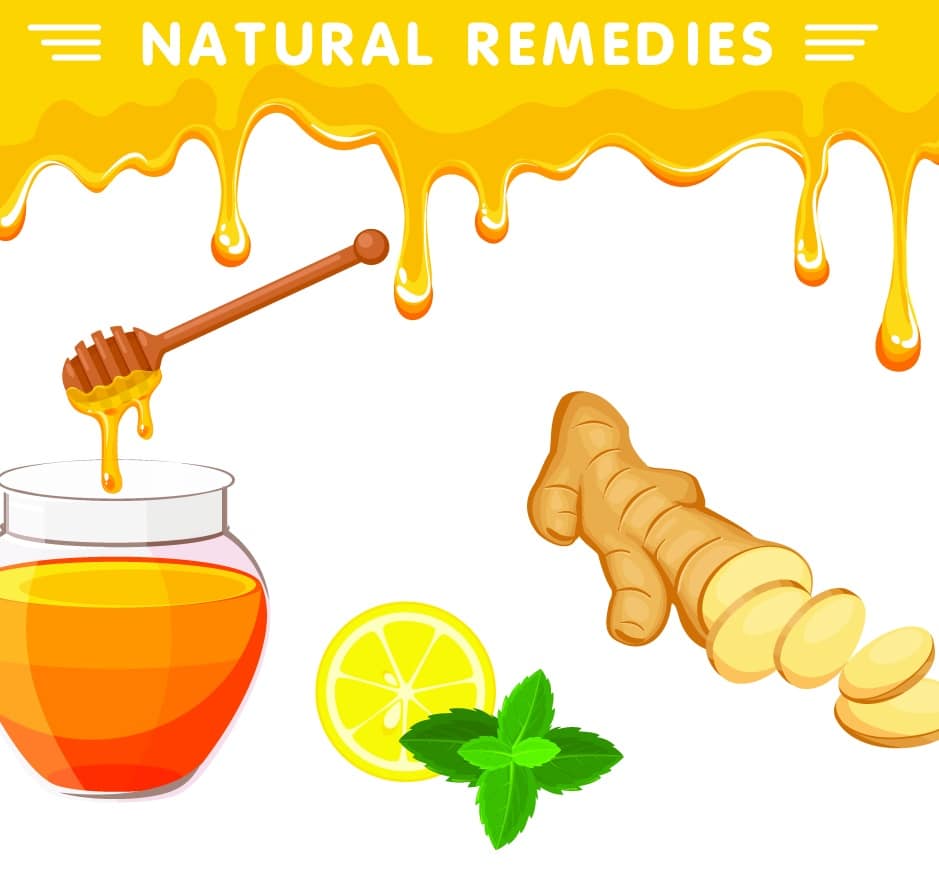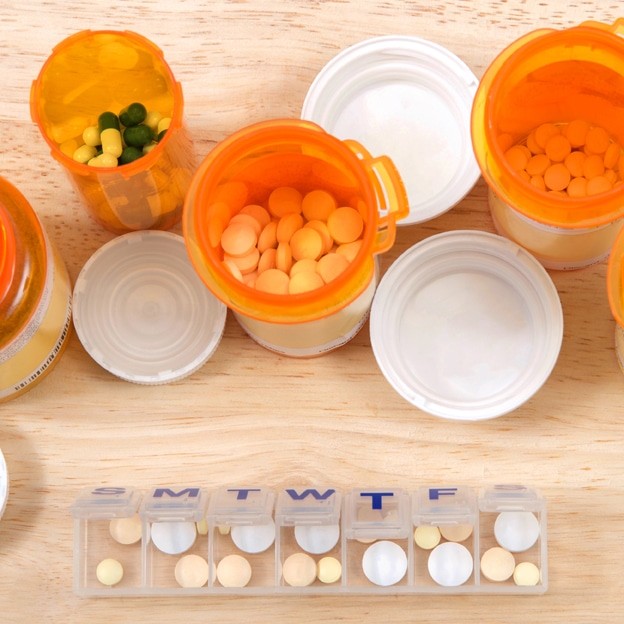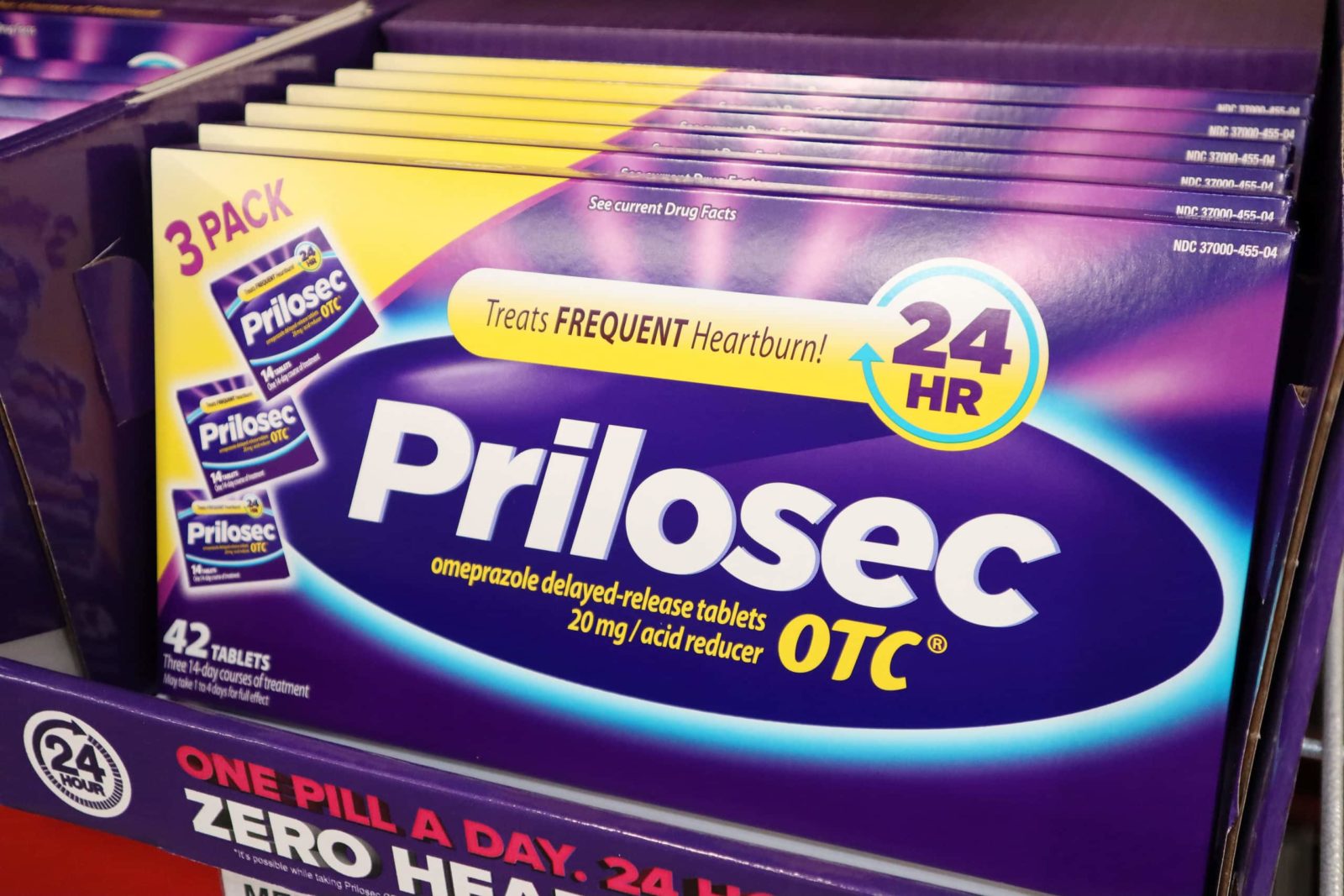
Nexium vs Prilosec: Are These PPIs Safe To Take?
At-A-Glance
- Often used to treat acid reflux, PPIs, proton pump inhibitors, are a class of acid-suppressant drugs. PPIs are among the most widely prescribed drugs in the U.S. with annual sales topping $12 billion and revenue growth of 4% per year.
- PPIs alone never cure acid reflux. In fact, if you stop taking PPIs, your reflux may get worse. But there are safe medications and diet and lifestyle choices that can cure acid reflux.
- There is strong evidence that taking PPIs is unsafe, even deadly. Reported complications of PPIs are depression, kidney disease, heart problems, esophageal cancer, and death. And the most common side effects of PPIs are headache, diarrhea, bloating, nausea, and stomach pain.
- PPIs should not be sold over-the-counter, and based on the currently available data, the Food and Drug Administration should strongly consider taking PPIs off the market altogether.
You’ve probably seen ads showing tiny stomach pumps churning out acid and then just giving up at the sight of a purple pill.
That doesn’t really happen.
For people with heartburn and indigestion (GERD, a type of acid reflux), PPIs relieve symptoms 60% of the time. For people with reflux-caused throat and respiratory problems (LPR, another type of acid reflux), PPIs relieve symptoms 40% of the time.
And at what cost? And to what end? Learn why the benefits you may feel from PPIs are definitely not worth the risk.
It’s also unfortunate to note that many people prescribed PPIs are never told that they can likely relieve their symptoms *without* PPIs.
For reference, the common PPIs (brand name on the left / generic name on the right):
- Nexium / esomeprazole
- Prilosec / omeprazole
- Protonix / pantaprozole
- Prevacid / lansoprazole
- Aciphex / rabeprazole
- Dexilant / dexlansoprazole
- Zegerid / omeprazole
A quick video, then lots of details.
What Are Proton Pumps and What Do They Do?
PPIs relieve the symptoms of acid reflux by slowing down proton pumps… but they do it throughout the body, not just in the stomach.
Proton pumps aren’t just located in the stomach. They’re in almost all of the body’s tissues where they perform functions that have nothing to do with acid. So while the proton pumps in the stomach make acid, proton pumps in the heart, brain and kidneys perform vital functions.
Think about that: the arrogance of big pharma!
Proton pumps are in virtually all cell membranes and are related to cell energy regulation, nutrient uptake, and cell-cell communication. Proton pumps are found throughout the gastrointestinal tract, in muscle, including cardiac muscle, and in neural tissue including the brain. It’s no wonder that researchers are discovering significant unintended and pernicious consequences of PPI use.
All of those pumps are being instructed to slow down or stop performing vital functions.
It’s shocking that PPIs are available over-the-counter. They should be prescribed by a doctor for no more than 8 weeks, and they should be discontinued (tapered) under a doctor’s supervision. Based on the currently available data, the Food and Drug Administration should strongly consider taking PPIs off the market altogether.
The Dangers of PPIs
Peer-reviewed research has linked PPIs with a host of life-threatening complications, including depression, kidney disease, hip fractures, and heart problems such as arrhythmias, heart attacks, heart failure, and sudden death.
PPIs increase your risk of cancer.
In 2014, the author (JK) completely stopped using PPIs in her practice after publication of the Danish Study, which found that long-term use of PPIs increased the risk of developing esophageal cancer. This was a well-done, national study of almost 10,000 patients, prospectively studied. The report made clear that even if PPIs improve patients’ symptoms; they fail to control the progression of reflux disease; hence the increased cancer rate in long-term PPIs users.
PPIs increase your risk of death.
As far as I am concerned, the last worrisome nail in the PPI coffin was publication assessing the risk of death among users of proton pump inhibitors. This was a Veterans Administration report with a large study sample comparing reflux patients on H2-Antogonists (n=73,335) with those on PPIs (n=275,977); the study found that the death rate was 25% higher in the PPI group.
PPIs have problematic side effects.
The most common side effects of PPIs are headache, bloating, nausea, diarrhea, and stomach pain. That might sound manageable, but it can be severe.
Case study from my practice: a 25-year-old man on PPIs went to the emergency room with severe abdominal pain. He was in the hospital for two days, and had many tests, including CT scans and MRIs. No one ever asked if the patient was on a PPI. It was a very expensive hospital visit with no positive outcome. When I saw him, I immediately took him off the PPI, and within days his abdominal pain completely subsided.
PPIs cause rebound hyperacidity: you get worse when you stop taking PPIs.
PPIs are used heavily not just because of doctors recommending them, but also because they promote themselves so heavily to the general public… and they’re available over-the-counter.
Let’s say you take them for a few weeks, then stop. Soon after, you may begin to experience worse reflux symptoms than before. What will you do? Go back on the PPI again, right? And again, when you stop, the reflux gets worse. While this on-again-off-again pattern may be good for drug sales, it’s not good for you.
Stopping PPIs abruptly causes rebound hyperacidity for many people – even worse acid reflux than before.
Because acid reflux isn’t treated by PPIs, you’re still at risk of esophageal cancer.
Even if you’re “lucky” enough to get relief from PPIs, your acid reflux is still damaging your esophagus, so you’re still at risk to develop esophageal cancer.
The FDA never should’ve allowed PPIs to be sold over-the-counter, and they should be taken off the shelves now. Regardless, you should get off PPIs – but you need to taper off.
What’s the Best Way to Taper Off PPIs?
The proper way to taper off PPIs is to switch to another safer class of acid-suppressive medication, called H2-antagonists (H2As). Today, the most commonly used H2As are Pepcid (famotidine) and Tagamet (cimetidine).
Until recently, Zantac (ranitidine) was popular, but recent reports suggested that Zantac might have contained trace amounts of a carcinogen, so Zantac has been taken off the market (so it’s unlikely that you need to know how to wean off Zantac itself). Pepcid and Tagamet have been tested and are safe: no carcinogens.
Here’s how to taper off a PPI: H2As are available over the counter. Stop the PPI and instead take one of the H2As before each meal and before bed.
Week 1: 4 pills per day (one before bed, one before each meal)
Week 2: 3 pills per day (one before bed, one before lunch and dinner)
Week 3: 2 pills per day (one before bed, one before dinner)
Week 4: 1 pill per day (one before bed)
Week 5: you’re pill-free
Remember, while not quite as strong as PPIs, H2As are safe, with few side effects.
PPIs Never Cure Acid Reflux – Here’s How to Treat It
At best, PPIs provide symptom relief, and the vast majority of people with the most common type of acid reflux (LPR) get no benefit from PPIs at all.
PPIs alone never cure acid reflux. Thankfully, there are safe and effective alternative medications and natural remedies.
In my practice, almost all of my patients come to me on PPIs, usually without benefit. I stop PPIs at the patient’s first visit, tapering with H2As as described above. I’ve successfully managed and cured reflux in thousands of reflux patients without PPIs.
Reflux is curable with effort and commitment to change. I’ve written four books about these topics: Dropping Acid: The Reflux Diet Cookbook & Cure, The Chronic Cough Enigma, Dr. Koufman’s Acid Reflux Diet, and Acid Reflux in Children.
However, here are the most important pieces of advice I can offer:
- No eating or drinking within five hours of going to bed
- Sleep on an incline no less than 45-degrees (gravity helps)
- Eat five small meals
- No fried or high-fat foods
- No alcohol, chocolate or soft drinks (including fruit juice) of any kind
- Take Pepcid 20 mg. before each meal and before bed
- Take a tablespoon of Gaviscon Advance Aniseed after each meal and before bed (not available in stores in the U.S., but available online)
- Drink alkaline water as much as you conveniently can, especially after more acidic food/drink – bottled alkaline water is convenient, and/or consider buying an alkaline pitcher (and test it or anything else with pH paper or a pH tester)
If you’ve read at least one of my books and you’re following this guidance and you still need help, you can book a consultation with me.
I’m Mad About PPIs – What Can I Do to Fight the Industry?
Here are a few ways consumers and health professionals can take action against the PPI epidemic.
- Boycott PPIs: Tell your doctor that you don’t want to be on a PPI, and tell your doctor to read this post.
- Stand up to the FDA: PPIs should never have been allowed to be sold over-the-counter, and they should be removed now. Petition the FDA to take PPIs off the shelves in our drugstores. Or maybe you should petition the FDA to remove PPIs from the market entirely.
- Regulation: PPIs should be regulated with maximum use of eight weeks per year, except in extraordinary cases.
- Accurate disclosure is also needed: The serious complications and side-effects of PPIs (referenced above) should be included in package inserts and in media advertising. Like cigarettes, PPIs should come with warning labels on them. And specifically, TV ads should more accurately state the risks, including death.
- Legal action: join a case action lawsuit like the one here.
P.S. – Why Doesn’t My Doctor Know About This?
I get asked this all the time: “Why doesn’t my doctor know about this?!”
My primary research on acid reflux and chronic cough has been available for decades. Dropping Acid has been a best-seller for a decade. And I was on TV and quoted in mainstream media for many years. But the medical community remains virtually unaware that LPR (laryngopharyngeal reflux), today often called silent reflux or respiratory reflux (all terms I coined), is a major cause of respiratory issues and chronic cough. In addition, neurogenic cough seems almost never properly diagnosed.
Thousands of my patients have been on a merry-go-round of specialists… a GI doctor, an ENT, an allergist, an asthma specialist. They’ve had tens of thousands of dollars of tests, prescriptions for medications that never could have helped them, and their respiratory issues never improved.
The problem in the U.S. is over-specialization. Most Americans mistakenly believe that they must see specialists for almost every medical problem. What people don’t know is that specialists determine what services insurance will pay the most for, and they can choose to deliver those expensive services… even for patients who don’t need them! The idea of dividing the body up into small, non-overlapping, anatomic areas makes no sense. The respiratory and digestive systems are intimately connected, and specialists do not seem to know that.
Imagine building a house by allowing each workman to do his own thing. The plumber would put a sink in every room. The electrician would install chandeliers on every ceiling. The carpenter would panel every room in luxurious wood. That’s how America’s medical specialist system works.
The evolution of my personal medical practice as an expert in acid reflux that affects the throat and airway (LPR, silent reflux, respiratory reflux – all terms that I coined) helped me see that silent respiratory reflux was ubiquitous. That means it’s all over the place, and it’s likely in almost half of Americans. REFLUX is the single most common cause of “allergies,” “asthma,” “sinus disease,” true sleep apnea, and chronic cough.
Please read up and advocate for yourself, finding solutions that may be elusive through traditional care channels.










